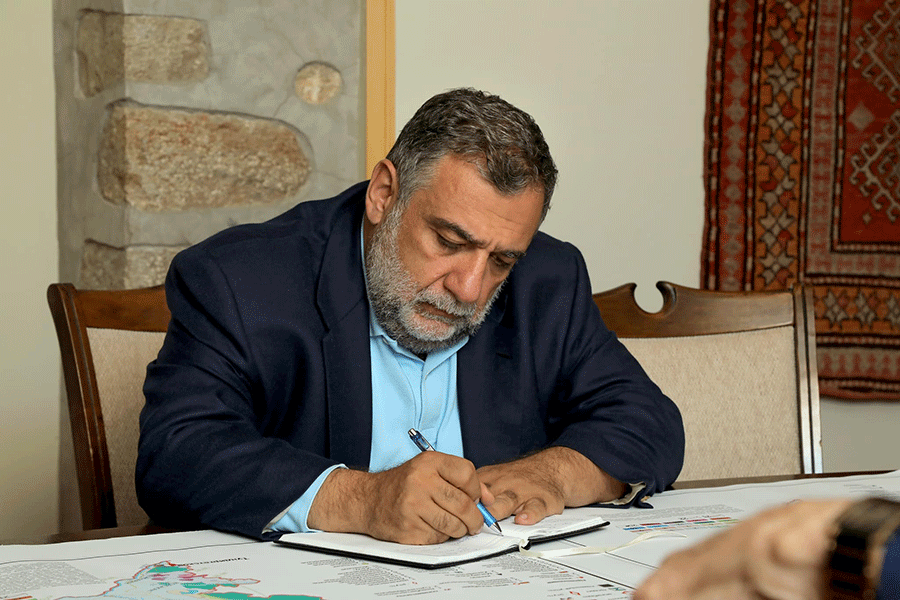The authorities of Armenia and Artsakh have some things that we don’t know, but I don’t understand, I don’t accept, and I won’t put up with the approach that the relations between Armenia and Artsakh have been used to put into people’s minds the idea that Artsakh is a headache. Ruben Vardanyan, the former state minister of the Republic of Artsakh, said this on the live air of Radio “Aurora.”
Are the leaders of our both republics ready for a long struggle because their position is unclear? “Unfortunately, you are right; what started in Armenia was unacceptable to me; for example, the other day, on one of the TV channels, they removed the word Artsakh altogether and wrote Nagorno Karabakh; they did not even mention the Republic of Nagorno Karabakh.
Or when they said that Mount Ararat is not ours and we don’t have the right to wear it on the coat of arms when it was said that all Armenian women are unhappy and all men are deserters. Or when they say that Artsakh is a headache, Artsakh will become Glendale and Javakhk. Unfortunately, today’s ruling power is making perilous thoughts, ideas, and steps, making people indifferent and losing our national values. That is very dangerous and must be stopped because we can lose, life is a chain of successes and failures, but we must not allow our national dignity and principles to be violated.” He believes being in Artsakh gives him the right to make harsh assessments and express a direct position about the relations between Armenia and Artsakh.
“On the other hand, they have some things that we don’t know, but I don’t understand, I don’t accept, and I won’t put up with the approach that the relations between Armenia and Artsakh were used to put the idea in people’s minds that Artsakh is a headache or as if Artsakh is not ours. Unfortunately, it was done, and it seems that it was done knowingly. I don’t see that the current government of Armenia realizes its responsibility towards the entire nation, yes, they were elected in Armenia, but they are responsible to 10 million Armenians worldwide.
Read also
The Armenian state, the Armenian way of thinking, being Armenian is vital, which is now being destroyed very gently and consistently in all directions.” Referring to the question of the policy of the former and current authorities in the direction of the Artsakh problem, Ruben Vardanyan compared the current situation of the besieged Artsakh with the battle of Sardarapat. He emphasized today it is necessary to fight in all directions to win this battle and then turn to other issues.
“I have always said that we are losing one of the last Armenian pillars; there is no need to look back; today we will either save or lose Artsakh; when you are under siege, you have to count every step, if it helps, to perform, if not, to refuse. In this ditch, both the prosecutor and the prisoner are in the same ditch; that is, both former and current leaders are in the same ditch. In the besieged Artsakh, 10-20 people can escape somehow.
Still, we are 120,000 people in the same boat,” he said, adding, “If before, the Armenian government was the guarantor of Artsakh’s security, now it is unclear what are the relations between the governments of Armenia and Artsakh like: are they partnership or is Armenia the guarantor or consultant of Artsakh? This semi-uncertainty has led to severe problems; these are insincere and not simple relations.
He believes that this crisis is a perfect opportunity to come clean. “I am sure that if we overcome this period, we as a nation will overcome everything. From 1988 to 1994, Artsakh was under siege for six years, not six months, but six years. People are talking about the most terrible situations. It’s not like it’s the first time that the people of Artsakh are in this crisis; it’s just that the feeling of injustice was not so acute then. We have had six years of struggle experience. Do you think we will not overcome this difficulty?” concluded Ruben Vardanyan.
Lusine MARGARYAN

























































